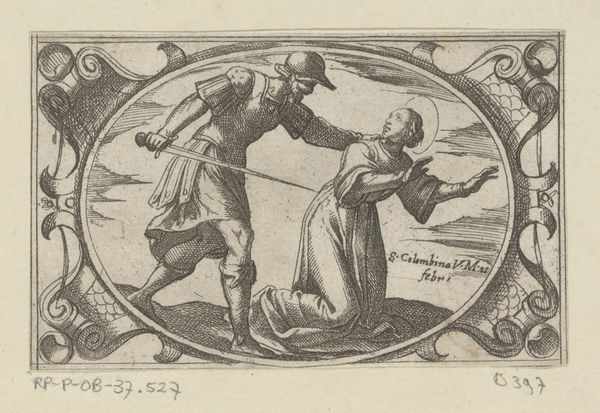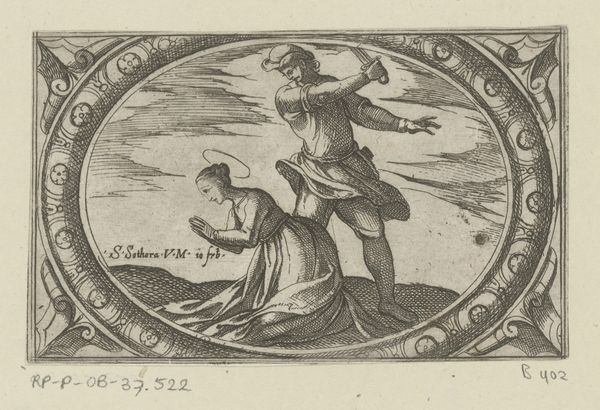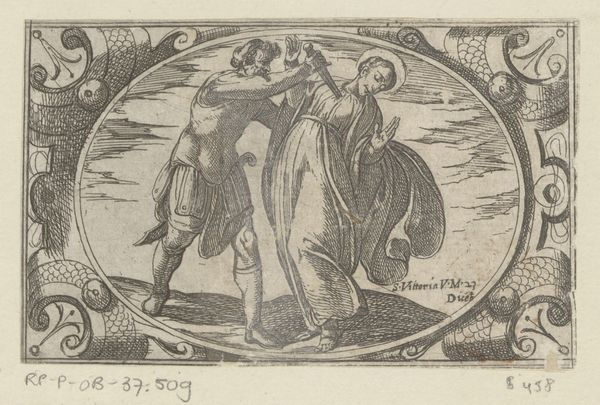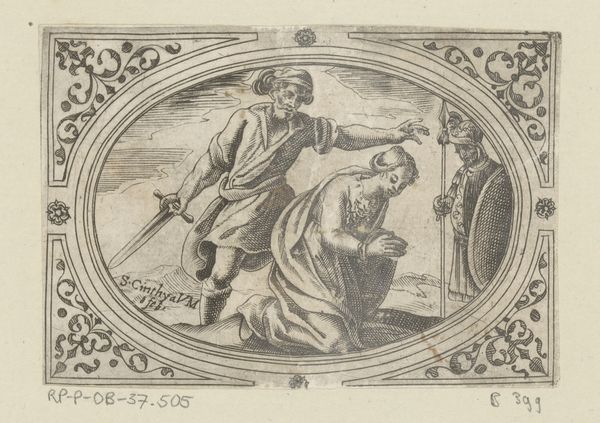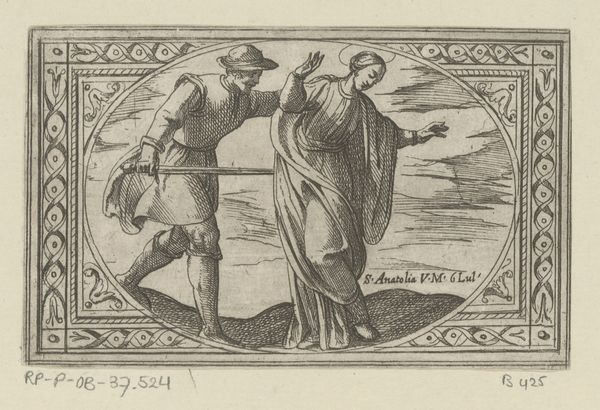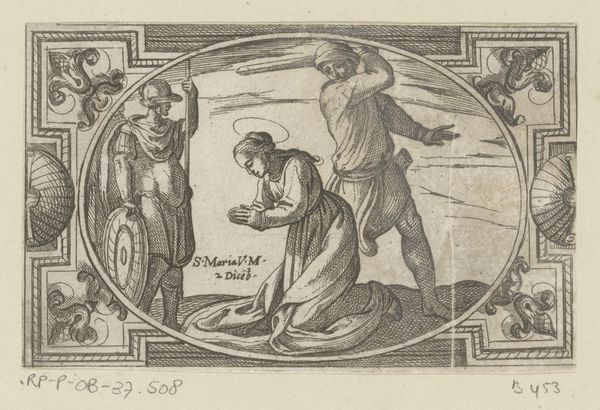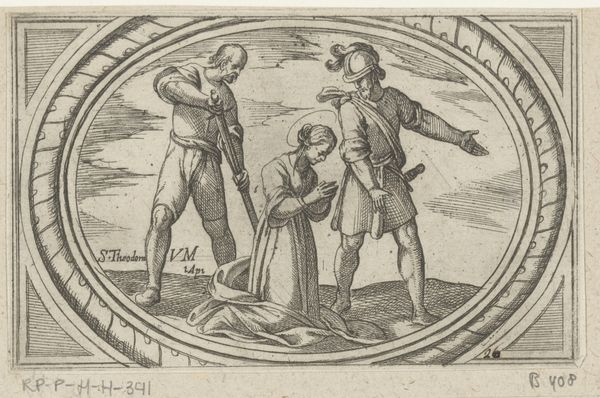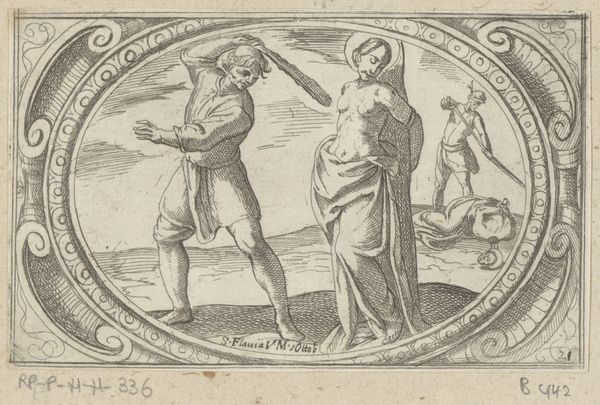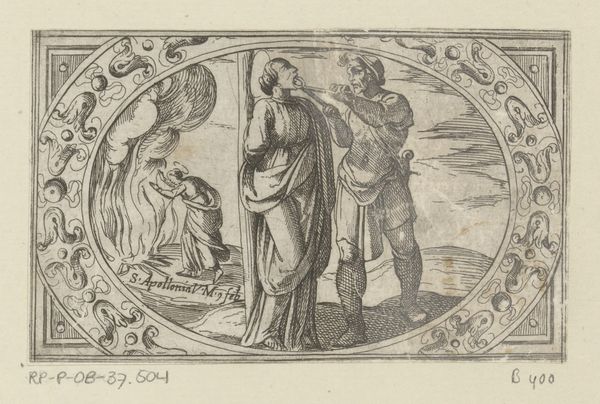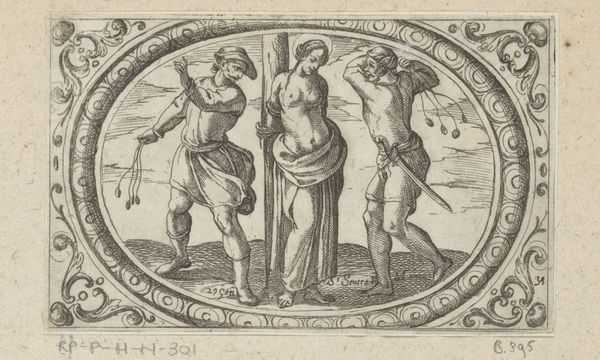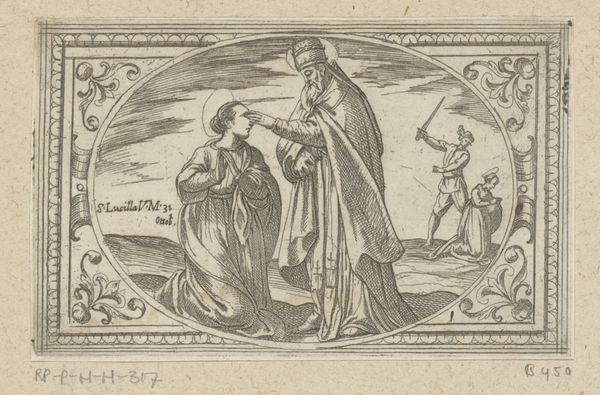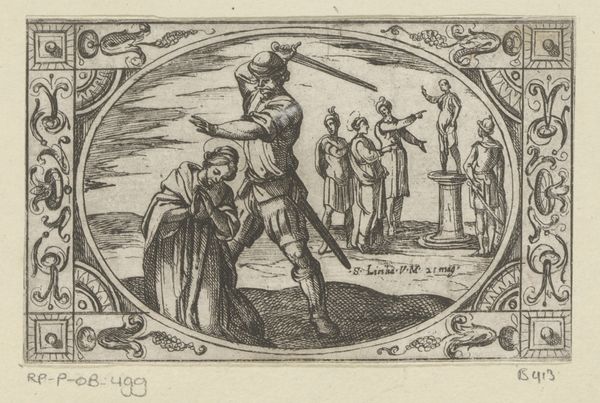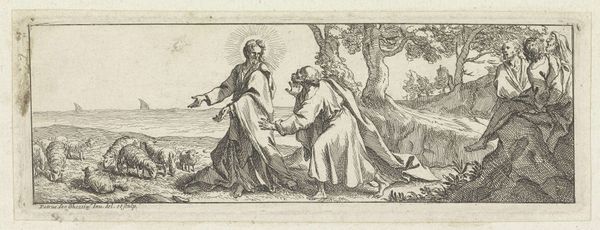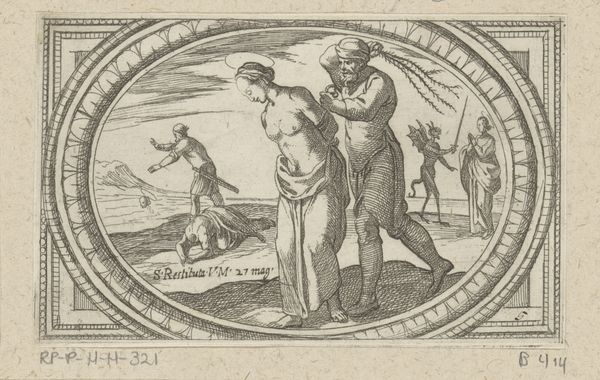
print, intaglio, engraving
#
baroque
# print
#
intaglio
#
figuration
#
pen-ink sketch
#
line
#
history-painting
#
engraving
Dimensions: height 73 mm, width 114 mm
Copyright: Rijks Museum: Open Domain
This print, "H. Cyrilla," was made by Antonio Tempesta sometime between 1570 and 1630 using an engraving technique. Look closely, and you'll see how the linear quality of the engraving directly informs the image. Tempesta used a tool called a burin to manually carve lines into a copper plate. The depth and proximity of these lines create shading and texture, defining the figures of Cyrilla and her executioner, as well as the ornate frame. Engraving was crucial in disseminating images across Europe, a pre-industrial form of mass production. Highly skilled artisans would have been needed to make these printing plates. Notice the level of detail achieved, and the intense labor involved. Consider the contrast between the brutal scene depicted and the refined technique used to create it. Understanding this relationship between material, making, and context allows us to fully appreciate the historical and cultural significance of this print, blurring boundaries between fine art and craft.
Comments
No comments
Be the first to comment and join the conversation on the ultimate creative platform.
